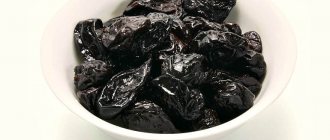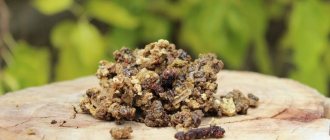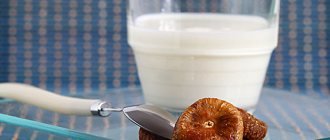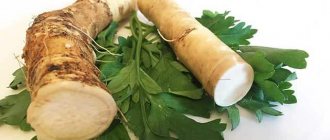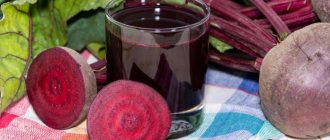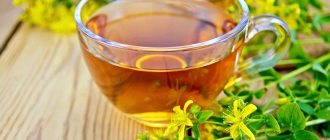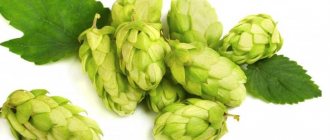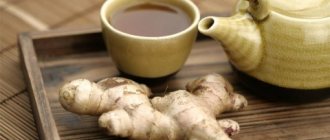Pharmacological properties
Pharmacodynamics
St. John's wort contains flavonoids (quercetin, isoquercetin, rutin, amentoflavone, hyperoside), anthracene derivatives (hypericin, pseudohypericin), xanthones (1,3,6,7-tetrahydroxy-xanthone), essential oils, hyperforin with small amounts of adhyperforin, oligomers, catechin tannins (including procyanidins), chlorogenic acid and other caffeic acid derivatives.
The high content of flavonoids contributes to the anti-inflammatory effect of the drug. Hyperforin inhibits the growth of gram-positive bacteria Streptococcus agalactiae and Streptococcus pyogenes, and is effective against penicillin- and methicillin-resistant strains of Staphylococcus aureus.
The drug stimulates the gastrointestinal tract, blood circulation, and has a general tonic, sedative, and anxiolytic effect.
The antidepressant effect of the plant is manifested due to the ability of the active substances to inhibit the reuptake of neurotransmitters (including serotonin) and influence the metabolism of melatonin.
The benefits and harms of St. John's wort infusion
In addition to St. John's wort tinctures, you can prepare decoctions and teas, which, when consumed, have a beneficial effect on the entire body.
The therapeutic effects and benefits for humans of medicines based on this plant are due to the presence in its composition of the following useful and biologically active components:
- rutin and hyperoside - help strengthen the walls of blood vessels of the circulatory system;
- phytoncides - substances that can have antibacterial and antiviral effects;
- hyperforin and hypericin - compounds act as antidepressants;
- vitamin C - strengthens the immune system, accelerates regeneration, improves skin condition;
- nicotinic acid - helps normalize the state of the cardiovascular and nervous system;
- tannins - accelerate wound healing, have a disinfecting effect;
- carotene - has a beneficial effect on vision, accelerates tissue regeneration;
- tocopherol (vitamin E) - acts as an antioxidant.
We recommend that you read Corn Porridge
Tinctures and decoctions can be used in the treatment of:
- bleeding gums;
- colds and flu;
- diseases of the bronchi and lungs: from pneumonia to tuberculosis;
- infection with worms or pinworms;
- rheumatism;
- swelling (as a diuretic);
- headaches;
- depression;
- sudden mood swings during menopause;
- hypotension;
- acne, various skin rashes.
Due to its choleretic properties, the plant can be used to treat the liver. It is recommended to use products based on St. John's wort as an additional component in the drug therapy of gynecological pathologies and hemorrhoids, as well as to improve the functioning of the gastrointestinal tract in cases of low acidity of gastric juice.
In addition to its benefits to the body, St. John's wort can have a harmful effect on it if the recommended dosages are violated.
Abrupt cessation of therapy with tinctures and decoctions of St. John's wort can provoke a decrease in male potency. Long-term use of alcohol-containing formulations based on this plant can increase the size of the liver.
It is prohibited to use plant-based drinks during antibiotic therapy. This is due to the fact that such a combination leads to a decrease in the effectiveness of the drugs used.
In the presence of mental illness, the use of drug therapy with St. John's wort can cause confusion, hallucinations, headache, and in some cases lead to coma.
The possibility of a negative effect on the body requires consultation with a doctor before using tinctures and decoctions of St. John's wort.
special instructions
During the period of use of the drug, ultraviolet (UV) radiation should be avoided, including visiting a solarium, using a UV lamp, and prolonged exposure to direct sunlight.
The maximum single dose of tincture for adults contains 0.36 g of absolute alcohol.
Impact on the ability to drive vehicles and complex mechanisms
It is recommended to exercise caution when engaging in potentially hazardous activities that require increased attention and high speed of psychomotor reactions.
Methods for preparing tincture at home
You can prepare an analogue of a pharmacy tincture yourself at home. To prepare the medicinal composition, you will need to prepare 70% alcohol or high-quality vodka, as well as plant materials.
We recommend that you read: What does chamomile treat?
St. John's wort flowers can be collected independently during the flowering period of the plant from mid-June to early August. It is better to collect St. John's wort in the morning; this is due to the fact that under the influence of sunlight at midday, flowers lose some of their beneficial substances.
St. John's wort tincture in vodka or alcohol consists of the flowers of the plant in fresh or dried form.
On vodka
Vodka tincture is used in folk medicine as a powerful pain reliever. The severity of the healing properties of this composition is lower compared to the use of alcohol, which is associated with the ability of the plant to release its beneficial components only in alcohol, the strength of which exceeds 50 degrees.
To prepare a vodka tincture you will need to prepare:
- 1 liter of vodka;
- 1 tablespoon of dry plant material or 1 fresh plant branch along with leaves, inflorescences and stem, fresh raw material is crushed and poured with alcoholic drink so that it covers the crushed mass;
- During the preparation process, 50-100 g of sugar or honey is added to the drink; this addition makes it more palatable.
For infusion, the crushed plant mass is placed in a glass container and filled with vodka. The container is placed on the window so that sunlight falls on it. The infusion process lasts a week. During this period, the contents must be shaken periodically.
After infusion, the resulting extract is filtered and taken in small quantities. In addition to internal use, vodka tincture can be used to relieve pain in muscle tissue and joints using gauze compresses soaked in a medicinal composition and attached to the area of pain.
On alcohol
Unlike St. John's wort tincture in vodka, a medicine prepared in alcohol has a stronger effect on the body due to the plant more fully releasing its beneficial substances into the extract.
We recommend that you read Chamomile for throat
Alcohol extract is used for prostatitis. It allows:
- stop the inflammatory process;
- reduce pain symptoms;
- normalize the process of urine outflow;
- improve the functioning of the genitourinary system.
The use of such a remedy is effective only in the initial stages of the development of the pathological process. St. John's wort extract prepared with alcohol can be used only if the patient is not intolerant to the components.
To prepare the medicine you will need:
- Pour pre-prepared raw materials into glass containers. Fill it with alcohol.
- The mixture should be infused for 14 days, during which time the container should be shaken periodically to mix the contents.
The resulting extract is filtered and taken 1 teaspoon 2 times a day. Before taking the drug, a single dose is diluted in 1/4 cup of clean water. The course of therapy using an alcohol extract from St. John's wort should not exceed 10 weeks.
In addition to prostatitis, an alcohol extract from St. John's wort flowers can be used to treat:
- stomatitis;
- depression;
- insomnia.
In the presence of stomatitis, it is recommended to dilute 50 drops of the medicinal composition in a glass of warm water and rinse the oral cavity with the resulting solution 2 times a day. To get rid of depression, you should add 5 drops of the composition to tea and take this drink 3 times a day.
In case of sleep disturbances in the form of insomnia, doctors recommend adding 7 drops of the extract to a glass of warm milk and drinking before bed until it normalizes.
Drug interactions
With the simultaneous use of St. John's wort:
- monoamine oxidase inhibitors can enhance their effect and cause the development of a hypertensive crisis;
- drugs metabolized with the participation of enzymes of the cytochrome P450 system can significantly change their concentration in the blood plasma;
- Digoxin may decrease its effectiveness and increase its toxicity after stopping the use of St. John's wort;
- iron preparations reduce their absorption under the influence of tannic acids contained in St. John's wort;
- oral contraceptives (a combination of ethinyl estradiol and levonorgestrel) can cause the development of acyclic bleeding;
- theophylline reduces its concentration in blood plasma;
- fluoxetine, paroxetine, sertraline, fluvoxamine, citalopram can enhance the effects and cause the development of serotonin syndrome;
- cyclosporine may reduce its plasma concentration.
St. John's wort tincture: application
In accordance with the instructions, the tincture is indicated for oral and external use. Recommended for oral administration: as an astringent for the treatment of gastrointestinal diseases and externally for the prevention and treatment of stomatitis, gingivitis in complex therapy.
St. John's wort tincture is contraindicated:
- during pregnancy;
- when breastfeeding;
- children under 12 years old;
- if you are sensitive to the components of the drug.
Caution must be exercised in patients with many liver diseases, alcoholism, brain pathologies, and traumatic brain injuries. St. John's wort tincture can be harmful when used with other herbs and medications.
When treated with antidepressants and antibiotics, the drug can cause dizziness, increased anxiety, and a migraine attack; when taking contraceptives, their effectiveness decreases. Long-term use of any preparations based on St. John's wort can cause discomfort in the liver, increased blood pressure, and cramps in the intestines.
St. John's wort decoction
St. John's wort decoction is used for gastrointestinal diseases: colitis, gastritis, cholecystitis, enteritis, hepatitis. The same decoction can be used to rinse the mouth and throat, use for insomnia, and for washing wounds, burns and other skin problems.
To prepare such a decoction, pour 250 ml of hot water into two tablespoons (tablespoons) of chopped dry herbs. Place the composition in a water bath for half an hour. Cool, strain and take 50 ml of the product three times a day, after meals.
For face
Homemade decoctions prepared with St. John's wort have a rejuvenating, refreshing effect on the skin.
They are prepared according to a simple algorithm. In an enamel ladle, heat 2 cups of water until boiling. Spread crushed St. John's wort - 2 tbsp. l.
Article for you:
Medicinal properties of oat decoction, contraindications, preparation and use for children and adults
At a low boil, heat for 10 minutes. The cooled broth is squeezed through a double gauze napkin. Use for morning and evening wash.
Possessing pronounced tightening and elasticity-enhancing characteristics of the skin, the decoction can be poured into small molds and frozen. Use cosmetic ice of this type in the morning and evening to wipe the skin.
With systematic implementation of procedures, wrinkles are gradually smoothed out, the skin acquires a pleasant color and well-groomed appearance.
St. John's wort oil
It has anti-inflammatory properties, promotes rapid healing, and disinfects abrasions and wounds. It is used externally to treat purulent wounds, burns, bedsores and ulcers, in the form of warm compresses for sore throats. The oil is taken internally for gastrointestinal diseases, one teaspoon (teaspoon) in the morning, on an empty stomach.
Place freshly cut flowers tightly in a jar, preferably glass, and fill them with olive or regular sunflower oil, but always refined oil. Cover the container with a lid and place it on a sunny windowsill for three weeks. The composition must be shaken regularly. The finished oil takes on a reddish tint. It is filtered and applied externally.
St. John's wort ointment
This ointment is effective for cuts, abrasions, fractures and bruises. Mix three tablespoons (tablespoons) of powdered herbs with pork fat until the consistency of thick sour cream. Mix thoroughly and store in the refrigerator.
There is another way to prepare the ointment. To do this, you need to mix St. John's wort, ground into powder, and baby cream or Vaseline in a 1:1 ratio. Stir this mixture and heat over low heat for three minutes. Cool and store in the refrigerator.

